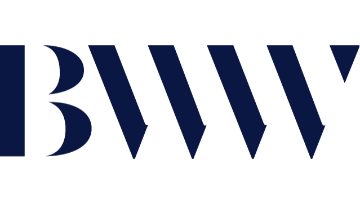
Top 5 Things Candidates Ask Us (and our advice!)
- What is the client really looking for – qualities beyond the spec?
While job specifications list the required skills and qualifications, employers are often seeking more than just technical expertise. They are looking for candidates who not only meet the outlined criteria but who also possess qualities that will enable them to thrive within the company’s culture. These traits are often not explicitly mentioned in the job description but can be just as crucial to your success in the role.
Beyond the technical skills, employers highly value soft skills such as teamwork, resilience, effective communication, and problem-solving. These interpersonal traits often determine how well you collaborate with others, handle challenges, and fit into the company’s work environment. A positive attitude, flexibility, and the ability to adapt to changing circumstances can make a significant difference in your performance and relationships with colleagues.
Researching the company’s values and mission statement is an excellent way to understand the qualities they hold in high regard. Consider how your own attributes align with these values, and be prepared to highlight them during your interview. Think about your previous experiences that showcase these qualities and how they have contributed to your success. This will not only demonstrate that you understand the company’s culture but also that you are a great fit for it, giving you an edge in the hiring process.
- Why have they picked out my CV? What aspects of my experience should I focus and build on?
When a company invites you to interview, it’s because something about your CV has caught their eye. It’s important to reflect on why your experience, skills, or qualifications stood out to them. Was it your experience in a particular industry or your expertise in a specific area? Perhaps it was your achievements in past roles or the way your background aligns with the company’s current needs.
Take some time to carefully review your CV and identify the areas that the employer might have found compelling. For example, if you’ve led projects, improved team performance, or implemented successful strategies, these accomplishments will likely be of particular interest to your potential employer. Think about how these achievements align with the challenges the company is facing or the goals they are working towards.
During the interview, focus on these key aspects of your experience and be ready to elaborate on how they directly address the company’s needs. Build on your strengths and discuss specific examples that demonstrate how your past work has prepared you for the role. Tailoring your responses to the specific elements of your CV that grabbed their attention will show the interviewer that you are not only aware of your strengths but also able to apply them effectively in the role.
- How many people has the company asked to interview?
Understanding how many people are being interviewed for the position can give you valuable insight into the company’s selection process. If you know that there are only a handful of candidates, you can infer that your chances of securing the role are higher, but the company may be looking for a very specific fit. On the other hand, if there are many candidates, this could indicate a highly competitive position, but it also gives you the opportunity to differentiate yourself from the rest.
If there are only a few interviewees, it’s likely that the company is being selective, so it’s important to present yourself as a top-tier candidate who not only fits the job requirements but also excels in other areas, such as cultural fit and adaptability. Alternatively, if there are many candidates, think about how you can stand out in a crowded field. Focus on your unique skills, experience, and the ways in which you can add value to the company. This knowledge should inform your strategy and help you tailor your responses to showcase your best attributes.
Ultimately, being aware of the number of candidates will help you adjust your mindset. Whether you’re one of many or one of a few, it’s essential to remain confident in your abilities and focus on how you can bring something distinctive to the role.
- What would give me the edge?
To stand out in an interview, preparation is key. The more you know about the company and the position, the better equipped you will be to demonstrate how your skills align with their needs. Thorough research will allow you to identify the company’s challenges and goals, which will enable you to discuss how you can contribute to their success.
One of the most important things you can do is to practice common interview questions and prepare thoughtful questions for your interviewers. This will not only help you feel more confident but will also show that you are genuinely interested in the role and the company. Being able to speak about specific aspects of the company’s operations or goals demonstrates that you’ve done your homework and are ready to contribute immediately.
Moreover, confidence, enthusiasm, and authenticity are powerful tools in setting yourself apart from other candidates. Employers appreciate candidates who can engage with them on a personal level, so let your passion for the role shine through. Highlight your unique experiences and how they’ve shaped you as a professional. When you combine thorough preparation with a genuine attitude, you’ll give yourself the best possible chance of making a memorable impression.
- What is the background of the people who are interviewing me?
Understanding the backgrounds of your interviewers can be a game-changer when it comes to tailoring your responses and building rapport during the interview. By researching their professional roles, experiences, and interests, you can gauge their expectations and adapt your responses to resonate with them more effectively. For example, if you know that one of your interviewers has a background in project management, you can emphasise your experience working on cross-functional teams or managing deadlines.
LinkedIn is an excellent tool for researching your interviewers. It allows you to see their career paths, areas of expertise, and even shared connections. This can provide valuable insights into their priorities, helping you engage in more meaningful conversations. Understanding what your interviewers value and how they see the role will allow you to frame your answers in a way that addresses their specific concerns and interests.
Additionally, demonstrating that you’ve done your research on the people interviewing you shows that you are proactive and genuinely interested in the team and the company. It’s a great way to build rapport, establish a connection, and show that you are committed to becoming part of the company’s culture. Engaging with your interviewers on a more personal level can be the key to standing out and leaving a positive, lasting impression.

